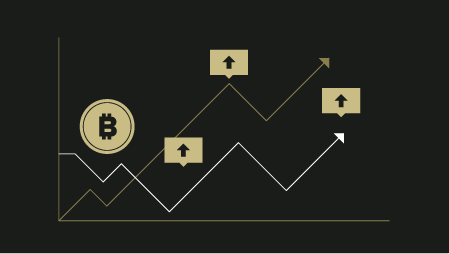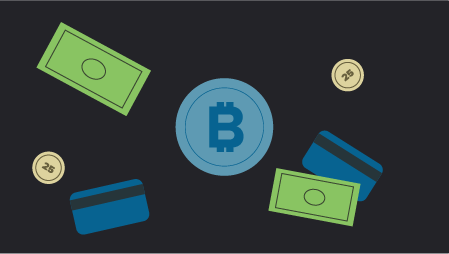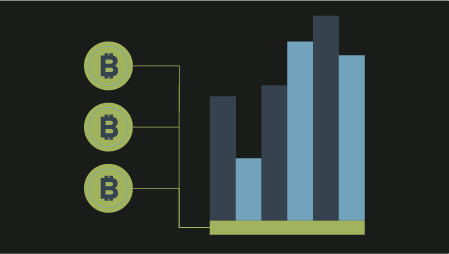Working at a university, dozens of people ask us: “How can I get in blockchain? What do I have to read?” Therefore, we now took the time and developed a 10-day program to onboard people interested in blockchain and DLT. The adoption of blockchain technology gets more and more widespread. Therefore, it is essential — also for employees working with topics such as digital transformation — to have a basic understanding of blockchain technology. This article summarizes main sources which can be used to acquire initial blockchain knowledge. We recommend podcasts, books, networking events, papers, study programs, workshops, online courses and online articles. We “design” a 10-day program, which makes it possible to acquire the necessary blockchain basics just within a few days in a “learning and doing” mode. Please note that as lecturers of an university we are biased and therefore also present sources of ourselves. — Authors: Philipp Sandner, Jonas Groß
Introduction
Blockchain technology approaches reality and more and more companies plan and implement first blockchain projects. In June 2019, Facebook has announced its crypto currency project — one of the most promising announcements so far. Other companies are also very active (e.g. Börse Stuttgart, Commerzbank, Bosch, Daimler and hundreds of startups) and even Germany as a country now has a national blockchain strategy.
Therefore, it is important to have a basic understanding with respect to blockchain. Blockchain will be a core technology for the next decades and will disrupt everything related to finance — and much more. At this point in time, crypto currencies are live and have market capitalizations of dozens of billions of US dollars — currently led by Bitcoin. Soon, traditional currencies such as the Euro or the US dollar will also run on blockchain-based systems as well as all kinds of securities such as debt instruments, stocks, funds etc. All these assets, especially the Euro and US dollar on blockchain systems, will be used by various industries in the context of financial activities. However, there exists also a variety of non-finance use cases of blockchain technology: identity management, voting systems, tracking goods along the supply chain, provenance of goods etc. As said, it is a very powerful technology with a broad field applications.
Those who decide to engage with the topic of blockchain now, in autumn 2019, will be pretty busy for the next 10 to 20 years. These people will design the digital transformation of the economy instead of having to observe how their own workplace is being transformed or vanishes at all. Simply put, they have the chance for a promising career.

Figure 1: How to acquire blockchain knowledge with a workload of 10 days?
How to gain knowledge?
If you intend to acquire blockchain knowledge, you have various different options (see Figure 1): listening to podcasts, reading books, papers or online articles, networking and attending blockchain-related study programs or online courses. Some of these options are “low-hanging fruits” such as podcasts, others require a higher amount of commitment such as studying white papers or participating in a programming or smart contract coding course. Learning about blockchain and DLT is more than YouTube video and podcasts. Therefore the latter tasks are also inevitably necessary if you take it seriously.
What is the level of understanding that should be acquired?
Everybody who works or intends to work in the field of blockchain should at least be able to understand — and program — a very simple smart contract such as an escrow process implemented with a couple of lines of code in the program language Solidity. This is a clear statement which — in our mind — makes sense although other people would say that a different focus should be made when learning about blockchain and DLT.
In our mind, the need to understand a simple smart contract (say 5–10 lines of code) is important not only for employees in the field of information systems, but also in the field of business, economics and law. Deeper technological knowledge about how to configure nodes, however, is mostly not urgently necessary but could be acquired later on.
Anybody who seeks to get involved with blockchain technology and considers the following steps, can potentially have a glorious career ahead. We believe that blockchain technology and its increasing importance have the potential to positively affect the career path of an interested person since there is a lot to do over the next few years — and even decades — within this dynamic and fast growing segment. This way, the risk of losing a job (e.g. in the financial sector) as a result of increasing digitization and automation can be minimized.
But how can an interested person gain enough knowledge? Which opportunities exist to study blockchain technology? This article summarizes some different tactics for blockchain education. We basically design a specific program to get “blockchain-ready” in approximately 10 working days. As the authors are from Germany, there is a slight focus for this country.
Purchasing and transferring crypto currencies
Time needed: ½ day
Besides gaining some theoretical knowledge, it is very important for understanding this technology that you operatively “get your hands dirty”. This works as follows and provides interested persons with the most important learning about what blockchain technology actually is.
The best exercise to get started is therefore: Purchasing a crypto currency such as Bitcoin and transferring it around the globe. As follows, please find a step-by-step guide:
- Open an account e.g. on coinbase.com or bitfinex.com; further alternatives: Bitstamp, Bitrex, Binance. Coinbase for instance had 43 million verified users by the end of 2020 and is one of the most popular platforms.
- Buy Ether for 10 Euro and also Bitcoin for the same amount. Please be aware that in case of making mistakes with public or private keys, this money can be lost irreversibly. So, to follow this step is of course everybody’s own decision.
- Open a second account (examples above).
- Obtain a wallet address from the second account which looks similar to 0xd42899dcC146d4788649e6aa5B09f129fC269127 for Ethereum.
- In the first step, transfer a fraction of Ether or Bitcoin you have purchased to this address. Note that addresses for Ether and Bitcoin are different, so be cautious and do not mix them up.
- Now you can see that value can be sent around the world just within a couple of seconds (Ether) or minutes (Bitcoin).
- A more advanced step but extremely helpful to understand blockchain: Add the plug-in MetaMask to the Google Chrome internet browser to access the Ethereum network directly and to store your Ether in your own wallet. Thereafter, open an account and generate your own wallet address. Then, transfer some of your Ether from the earlier steps to this newly generated wallet.
Listen to podcasts
Time needed: 1 day for listening to 10–15 episodes
There exist very interesting and insightful blockchain and crypto podcasts. They can be very helpful by providing first basic knowledge about blockchain technology and crypto currencies.
- Block 52: Prof. Dr. Philipp Sandner, Katharina Gehra and Philipp Schulden provide weekly interviews with experts in the field of blockchain in Germany. Access the podcast via the iPhone Podcast App or Spotify.
- BTC Echo: This podcast targets a more advanced audience with focus on Bitcoin and crypto assets. Access the podcast here.
Read important white papers
Time needed: ½ day
To get a feeling about the origin and the concept of blockchain technology, it is necessary to study the white papers of the two most important crypto currencies Bitcoin and Ether. Note that it is not necessary to understand at this stage, how blockchain technology exactly works on a technological basis. Reading the white paper should rather provide a high-level overview about the intentions of the crypto currencies and about the mechanics of the technology. In this article, we use the word “crypto currency” although we know that it would be better to use “crypto asset” or “token”. However, by doing so we try to tap into people’s previous experiences with the media which often also frequently use the word “crypto currency” albeit other, more appropriate, words exist.
Most important papers:
- Bitcoin white paper: Nakamoto, S. (2008): Bitcoin: A Peer-to-Peer Electronic Cash System, https://bitcoin.org/bitcoin.pdf.
- Ethereum white paper: Buterin, V. (2013): Ethereum White Paper: A Next Generation Smart Contract and Decentralized Application Platform, http://blockchainlab.com/pdf/Ethereum_white_paper-a_next_generation_smart_contract_and_decentralized_application_platform-vitalik-buterin.pdf.
- Libra white paper: Libra Association (2020): The Official Libra Whitepaper, https://libra.org/en-US/white-paper/?noredirect=en-US.
Watch videos e.g. on YouTube
Time needed: ½ day
After turning to blockchain technology from a “scientific” angle by reading the original contributions about Bitcoin and Ethereum, you can use videos to further get familiar with the technology and to more deeply understand the different components of the technology. We recommend the following videos which are partly from 2016 but nicely show the visionary power blockchain and DLT can unfold.
Most important videos:
- Brownworth, A. (2016): Blockchain 101: Eine visuelle Demonstration (2016), https://www.youtube.com/watch?v=_160oMzblY8.
- Mynd (2016): What is Blockchain?, https://www.youtube.com/watch?v=5eLAI-Atl88&feature=youtube.
- Narula, N. (2016): The Future of Money, TED Talk, http://www.ted.com/talks/neha_narula_the_future_of_money.
- Tapscott, D. (2016): How the Blockchain Is Changing Money and Business, TED Talk, https://www.youtube.com/watch?v=Pl8OlkkwRpc#t=15.963723.
- Warburg, B. (2016): How the Blockchain Will Radically Transform the Economy, TED Talk, https://www.youtube.com/watch?v=7oUCSfeM9PY.
- World Economics Forum (2016): What is Blockchain, https://www.youtube.com/watch?v=6WG7D47tGb0
Networking and meet people
Time needed: ½ day for attendance at 2 meetups (mostly, for free)
As a next step, we recommend to step into the blockchain community and engage in first discussions with blockchain experts. In Germany, there exists both national and regional blockchain communities.
- Regional Meetups: There are also various regional blockchain meetups as in Frankfurt, Munich or in Bayreuth. They provide an easy way to discuss your thoughts and questions with blockchain enthusiasts nearby. Research on Google here and here.
- Frankfurt School Blockchain Center (FSBC) Events: Attending blockchain events of the Frankfurt School Blockchain Center (FSBC) is another possibility to approach blockchain technology. The FSBC organizes various conferences related to blockchain and crypto currencies such as the Crypto Assets Conference every year. Furthermore, discussions about current topics as Libra, security tokens and the Euro on blockchain systems are offered. To be up-to-date about FSBC events see www.fs-blockchain.de — here you can subscribe for the newsletter.
Further websites
Time needed: 1 day
By following the recommended steps you are now expected to have a basic, high-level knowledge about the technology. Now, it is time to dig deeper into blockchain technology. We urgently recommend to read the following contributions:
Websites of need-to-know projects:
- Ethereum: https://ethereum.org
- Sovrin: https://sovrin.org/
- Antminer: http://www.antminer-s9.com/
Another opportunity for approaching blockchain are articles on Medium.com. On this specific platform there exists a variety of blockchain-related articles covering blockchain basics and also more advanced topics. On the Medium page of the FSBC and of the authors (here and here) you can find more articles about the technology: from concrete use cases as connecting a e-scooter to Ethereum to a comparison of different blockchain frameworks.
Books for the wider overview
Time needed: 3 days for reading Tapscott’s “Blockchain Revolution”
Now, you should turn to books with a blockchain focus. We recommend you to read Tapscott’s book Blockchain Revolution. This book provides the broader picture why blockchain will be important in the future and how it potentially can change business processes, entire organizations or — potentially — the society. Besides, there are further books, which are definitely worth reading later on.
Further books (listed in alphabetical order):
- Diedrich, H. (2016): Ethereum: Blockchains, Digital Assets, Smart Contracts, Decentralized Autonomous Organizations. More information.
- Narayanan, A., Bonneau, J., Felten, E., Miller, A. and S. Goldfeder (2016): Bitcoin and Cryptocurrency Technologies: A Comprehensive Introduction. More information.
- Sandner, P., I. Welpe and A. Tumasjan (2020a): Der Blockchain-Faktor: Wie die Blockchain unsere Gesellschaft verändern wird, Amazon-Link.
- Sandner, P., I. Welpe and A. Tumasjan (2020b): Die Zukunft ist dezentral: Wie die Blockchain Unternehmen und den Finanzsektor auf den Kopf stellen wird, Amazon-Link.
- Steger, P. (2017): Die revolutionäre Technologie erklärt. Das System, ihre Anwendungen und Gefahren (2017). More information.
Scientific papers
Time needed: 0 days since this is optional
If you aim to approach the topic of blockchain more from a scientific perspective there is the possibility to study papers about blockchain technology. We will enlarge this list further.
Papers (descending order by publication year):
- Schlatt, V., Schweizer, A., Urbach, N. and G. Fridgen (2016): Blockchain: Grundlagen, Anwendungen und Potenziale, https://www.fit.fraunhofer.de/content/dam/fit/de/documents/Blockchain_WhitePaper_Grundlagen-Anwendungen-Potentiale.pdf.
- Badev, A. and M. Chen (2015): Bitcoin: Technical Background and Data Analysis, https://papers.ssrn.com/sol3/papers.cfm?abstract_id=2544331.
FSBC Working Papers (descending order by publication year):
- Höfelmann, D. and P. Sandner (2019): Entscheidungshilfe für den Einsatz von Blockchain-Technologien in Unternehmen: Vier Frameworks im Vergleich, https://medium.com/@philippsandner/entscheidungshilfe-für-den-einsatz-von-blockchain-technologien-in-unternehmen-vier-frameworks-im-fa7b5a9a0bc5.
- Valenta, M. and P. Sandner (2018): Comparison of Ethereum, Hyperledger Fabric and Corda, https://medium.com/@philippsandner/comparison-of-ethereum-hyperledger-fabric-and-corda-21c1bb9442f6.
- Higgins, M. and P. Sandner (2018): Blockchain Business Models for Autonomous IoT Sensor Devices, https://medium.com/@philippsandner/blockchain-business-models-for-autonomous-iot-sensor-devices-2732a489f28d.
- Eikmanns, B. C. (2018): Blockchain: Proposition of a New and Sustainable Macroeconomic System, https://medium.com/@philippsandner/blockchain-proposition-of-a-new-and-sustainable-macroeconomic-system-d9c628bd56b7.
- Gösele, M. and P. Sandner (2018): Analysis of Blockchain Technology in the Mobility Sector, https://medium.com/@philippsandner/analysis-of-blockchain-technology-in-the-mobility-sector-1078e429615f.
- Schöner, M. M, Kourouklis, D., Sandner, P., Gonzalez, E., and J. Förster (2017): Blockchain Technology in the Pharmaceutical Industry,
https://medium.com/@philippsandner/blockchain-technology-in-the-pharmaceutical-industry-3a3229251afd.
The FSBC releases working papers about blockchain-related topics and use cases every month. The FSBC Working Papers are published on medium either via the FSBC account or Prof. Dr. Philipp Sandner.
Blockchain-related study programs and workshops
Time needed: 0 days since this is optional
Choosing a blockchain-related study program or a training course is often — but not always — for younger people and therefore optional. Blockchain courses are e.g. offered by the following universities:
- Frankfurt School of Finance & Management: Certified Blockchain Expert program, Blockchain Business Strategy
- Blockchain Competence Center Mittweida: Blockchain Autumn School
- University of Nicosia: M. Sc. Digital Currency
And now?
It is important to “read” about how education in blockchain and DLT can work. At the end of the day, there is just one important thing: Just do it. Don’t just think, but rather act.
Write us, whether you followed our recommendations — and provide us with feedback. Tell us if you have further ideas, how to approach blockchain. If you have used other sources to gain or increase your blockchain knowledge, we would be very delighted if you could share them with us.
Do you want to learn more about how blockchain will change our world?
- Blockchain knowledge: We wrote a Medium article on how to acquire the necessary blockchain knowledge within a workload of 10 working days.
- Our two blockchain books: We have edited two books on how blockchain will change our society (Amazon link) in general and the everything related to finance (Amazon link) in particular. Both books are available in print and for Kindle — currently in German and soon in English. The authors have been more than 20 well-known blockchain experts in startups, corporations and the government from Germany, Austria, Switzerland and Liechtenstein — all contributing their expertise to these two books.

Our two books: the first one on blockchain and the society and the second one on blockchain and finance
Co-Author
Jonas Gross is a project manager and research assistant at the Frankfurt School Blockchain Center (FSBC).




